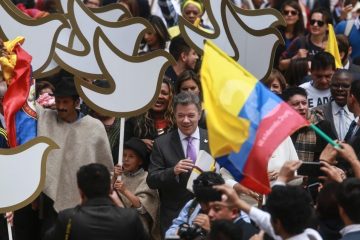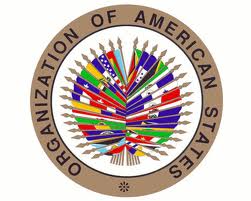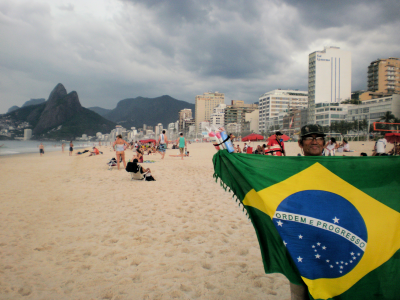
Why the real test for Colombia’s peace begins after the demobilization process
On Aug. 29, 2016, the Colombian government and the leftist insurgent group FARC initiated a cease-fire. The two parties had reached a remarkable peace accord a few days earlier, hoping to end 52 years of civil war. Colombian President Juan Manuel Santos announced that the peace deal will be formally signed Sept. 26, which would trigger the 180-day demobilization of the FARC. Colombia’s armed conflict, the longest-running in recent global history, left more than 220,000 people dead and about 6.7 million displaced within the region. The cease-fire formalizes the end of combat activities between state forces and the FARC, formally known as the Revolutionary Armed Forces of Colombia — and all hostilities against civilians. After decades of brutal violence and several failed peace processes, this …

The Revolution Without Chávez: What are the likely scenarios?
The news of the death of Venezuela’s President, Hugo Chávez, has predictably received divergent responses from the international media. His passing was met with glee by opponents of Chávez – who claim that his presidency was characterised by personalism, economic mismanagement and autocratic leanings – and met with dismay by supporters of the President and the Bolivarian Revolution – who see the potential for the undermining of his legacy, the vast improvements in social indicators, the attempts to socialise the economy and the recovery of a left-wing alternative after thirty years of neoliberalism.
This polarisation of the international media reflects the political polarisation within Venezuela. While sections of the opposition partied in Miami, Chávez’s supporters filled plazas throughout Venezuela on Tuesday night and on Wednesday, thousands marched with the coffin on its journey to lie in state in the Military Academy.
What unites both points of view, though, is an appreciation of the pivotal role of President Chávez in leading the transformation of Venezuela since 1999. The most fundamental question, therefore, has to be whether the Bolivarian Revolution can survive without this key figure.

Coordination in the Fight Against Transnational Organised Crime in the Americas: another band-aid solution?
In light of last month’s VI Summit of the Americas in Cartagena, Colombia, it seems obvious and commendable that the Secretary General of the Organization of American States (OAS), José Miguel Insulza, would call on the leaders of the region Friday to help coordinate the fight against transnational organised crime. The threat is, he claimed, the “main challenge to security in our hemisphere.” Insulza’s call comes on the heels of the adoption in Cartagena of Mexico’s proposal to create an Inter-American Centre for Coordination against Transnational Organised Crime. It is clear that dealers in drugs, arms and human trafficking (these items increasingly the wares of the same criminal merchants) do not limit their activities to the confines of national borders. And …

Political Reform in Brazil: Challenges and Opportunities
Last year was an extremely positive year for Brazilians. To begin with, Brazil overtook the United Kingdom and became the sixth largest world economy. Such growth came hand in hand with a continuing decrease in poverty and income inequality, and the strengthening of social policies by the recently elected president Dilma Rousseff (Workers Party). While her predecessor, Luiz Inácio Lula da Silva, sought to eradicate famine during his two terms in government, Dilma’s chief social ambition is to combat and eradicate extreme poverty. In line with her government slogan, “A Wealthy Country is a Country Without Poverty,” Dilma’s government transferred £5,8 billion to poor families in its first year in office. Apart from continuing progress in social policies, 2011 was …









